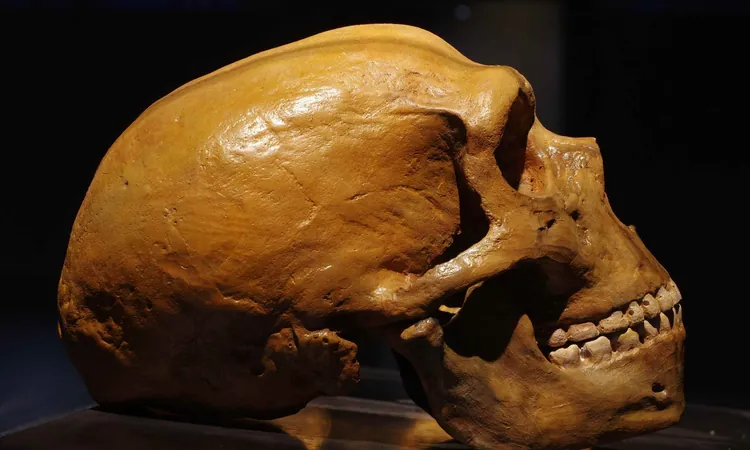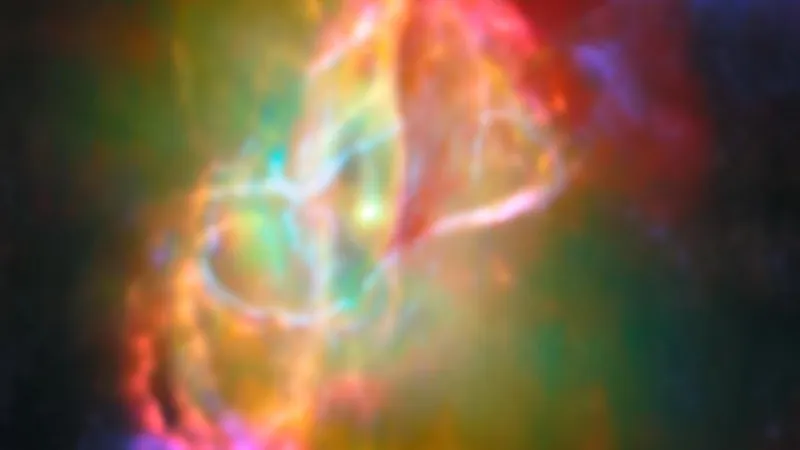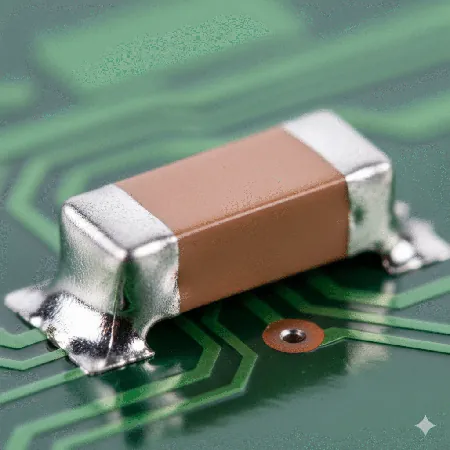
How Our Neanderthal Heritage Affects Muscle Performance Today
2025-09-02
Author: Nur
Unlocking the Neanderthal Legacy
Did you know that a small trace of Neanderthal ancestry might be limiting your muscle performance? In fact, many of us carry about 2% Neanderthal DNA, a leftover from our ancient ancestors who interbred with early modern humans.
The Role of the AMPD1 Enzyme
A groundbreaking study from 2017 highlighted the enzyme AMPD1, which is essential for recycling energy-rich molecules in our muscles during exertion. New research reveals that the Neanderthal variant of AMPD1 has about 25% less activity compared to its modern human counterpart.
Tracing the Path of Genetic Influence
Experts believe this specific version of AMPD1 is unique to the Neanderthal lineage. Modern humans inherited this genetic trait due to ancient interbreeding, which likely occurred roughly 50,000 years ago as early humans spread across Eurasia.
From Laboratory to Limitation
In laboratory tests, the Neanderthal version of AMPD1 demonstrated significantly reduced activity, translating to limitations in muscle function during high-stress situations. This enzyme plays a critical role in the purine nucleotide cycle, crucial for generating ATP, the powerhouse of muscle movements.
Neanderthal Influence in Sports
Interestingly, having one defective AMPD1 allele can cut the probability of becoming an elite athlete by about 50%. This edge in athletic performance highlights the delicate balance between genetics and peak physical capability.
The Health Implications
While reduced AMPD1 activity often results in little to no symptoms, some carriers may experience early fatigue or exercise-induced cramps. Further studies suggest a slight, mixed increase in risk for varicose veins associated with this variant.
Why the Variant Persists
You might wonder why a potentially detrimental variant has remained in our gene pool. One theory suggests that as human culture evolved, the demands for extreme muscle performance decreased, allowing this genetic change to proliferate without severe consequences.
Not All is Lost
It’s important to understand that carrying this genetic variant doesn’t spell doom for athletic aspirations. Instead, it sheds light on how our evolutionary past shapes contemporary life, influencing who might excel in sports even today.
A Window Into Our Evolutionary Chemistry
Enzymes like AMPD1 are catalysts that speed up chemical reactions, playing a pivotal role in energy metabolism. This research unveils how human energy systems have diverged from those of our primate relatives, emphasizing our unique evolutionary story.
Final Thoughts on Our Ancient Ancestry
While the remnants of our Neanderthal ancestry continue to impact our physiology, they also remind us of our shared evolutionary history. Understanding these nuances not only aids athletic performance but could also illuminate new pathways in medicine.
Stay tuned for more fascinating insights into our genetics and health!





 Brasil (PT)
Brasil (PT)
 Canada (EN)
Canada (EN)
 Chile (ES)
Chile (ES)
 Česko (CS)
Česko (CS)
 대한민국 (KO)
대한민국 (KO)
 España (ES)
España (ES)
 France (FR)
France (FR)
 Hong Kong (EN)
Hong Kong (EN)
 Italia (IT)
Italia (IT)
 日本 (JA)
日本 (JA)
 Magyarország (HU)
Magyarország (HU)
 Norge (NO)
Norge (NO)
 Polska (PL)
Polska (PL)
 Schweiz (DE)
Schweiz (DE)
 Singapore (EN)
Singapore (EN)
 Sverige (SV)
Sverige (SV)
 Suomi (FI)
Suomi (FI)
 Türkiye (TR)
Türkiye (TR)
 الإمارات العربية المتحدة (AR)
الإمارات العربية المتحدة (AR)